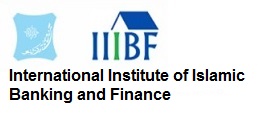Postgraduate Diploma in Islamic Banking and Finance (PGDIBF)
Preamble
The Postgraduate Diploma in Islamic Banking and Finance (PGDIBF) is meant for students from other disciplines who wish to pursue their education and career in the field of Islamic banking and finance. The programme is designed as a preparatory step towards a professional Master’s degree programme in Islamic Banking and Finance (MIBF). The programme is meant for both would-be and current practitioners in the banking and finance industry who wish to improve their understanding of key concepts and practices on Islamic banking and finance that may add significant value to their work. The programme is available on both part time and full time basis, and is run for a minimum of one full academic session.
Objectives
- To provide opportunity for individuals with relevant working experience to acquire knowledge and training for a career in Islamic banking and finance.
- To train executives in the banking and finance industry desiring specialization in Islamic banking and finance, in order to assist in expanding the banking and finance industry.
- To provide opportunity for fresh graduates in related disciplines to acquire necessary skills in Islamic banking and finance in order to prepare them to enter into the job market in Islamic banking and finance.
Learning Outcome
At the end of the programme, the course graduates would be able to understand the principles, rules and practices of Islamic financial institutions. They would also be able to relate and analyze theories of Islamic banking and finance to economics, finance, accounting, management, law, Shari'ah, information technology and other related disciplines.
Programme Structure
Candidates are expected to complete minimum of 10 courses of 2 credit hours each, making 20 credit hours, plus 4 credits of project before graduation. Students must attend 8 core courses and at least 2 elective courses, as follows:
First Semester Courses
| PIF 7201 | Islamic Economics | Core |
| PIF 7203 | Introduction to Principles of Islamic Jurisprudence | Core |
| PIF 7205 | Principles and Practices of Islamic Banking | Core |
| PIF 7207 | Statistics for Islamic Banking and Finance | Core |
| PIF 7211 | Islamic Finance Elective | |
| PIF 7213 | Taxation in Islamic | Elective |
| PIF 7215 | Islamic Accounting | Elective |
| Second Semester | ||
| PIF 7202 | Islamic Financial Management Analysis | Core |
| PIF 7204 | Introduction to Islamic Capital Markets | Core |
| PIF 7206 | Tijarah: Trade and Commerce in Islam | Core |
| PIF 7208 | Islamic Investment Financing (core) | Core |
| PIF 7212 | Introduction to Takaful and Re-takaful | Elective |
| PIF 7214 | Islamic Funds Management | Elective |
| PIF 7400 | Long Essay/Project |
Pre-requisite Courses
Apart from the core and elective courses, candidates may be required to register for pre-requisite courses in other graduate programmes or at the undergraduate level as the case may be, depending on the candidate’s prior background or academic qualifications.
Duration of Study
Full-Time: minimum a of 2 semesters or 1 full academic session and maximum of 4 semesters or 2 full academic sessions.
Part-Time: minimum of 2 semesters or 1 full academic session and maximum of 4 semesters or 2 full academic sessions.
Admission Requirements
- A Bachelor’s Degree with classification of ‘Pass’ or above in any field of study obtained from Bayero University, Kano or any other recognized institution.
- An MBA, MBF, MTM, MPA, MDS or MBCL (with CGPA below 3.0) obtained from Bayero University or any other recognized institution.
- A Postgraduate Diploma with minimum of merit in any field of study.
- A HND Certificate (with ‘Lower Credit’ grade or above) in any field of study obtained from a recognized institution.
- Any other qualification deemed equivalent to the above.
Graduation Requirements
A student is required to earn a minimum of 24 credits which shall comprise of 20 credits from examined courses taught in a classroom environment, and 4 from research Long Essay/Project in relevant area of Islamic Banking and Finance. The Long Essay is, however, not subject to oral examination. A student could be allowed to register for maximum of only 28 credits or attend classes in courses he/she has not registered for. However, no additional credits would be earned from such courses.





